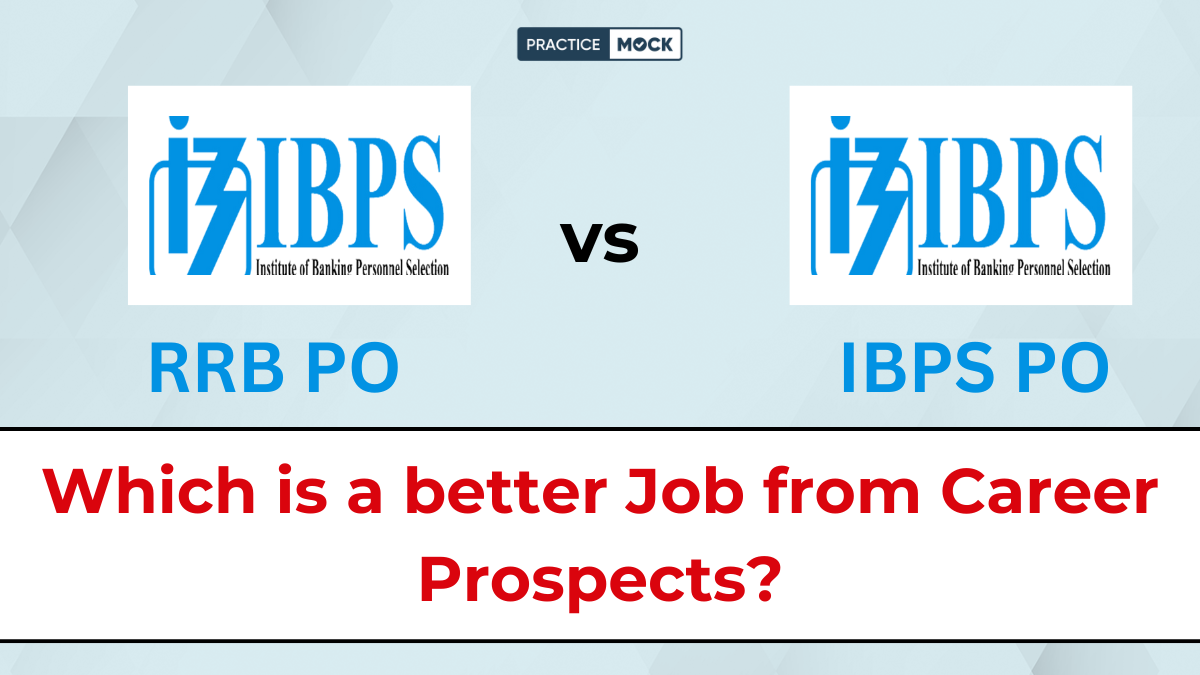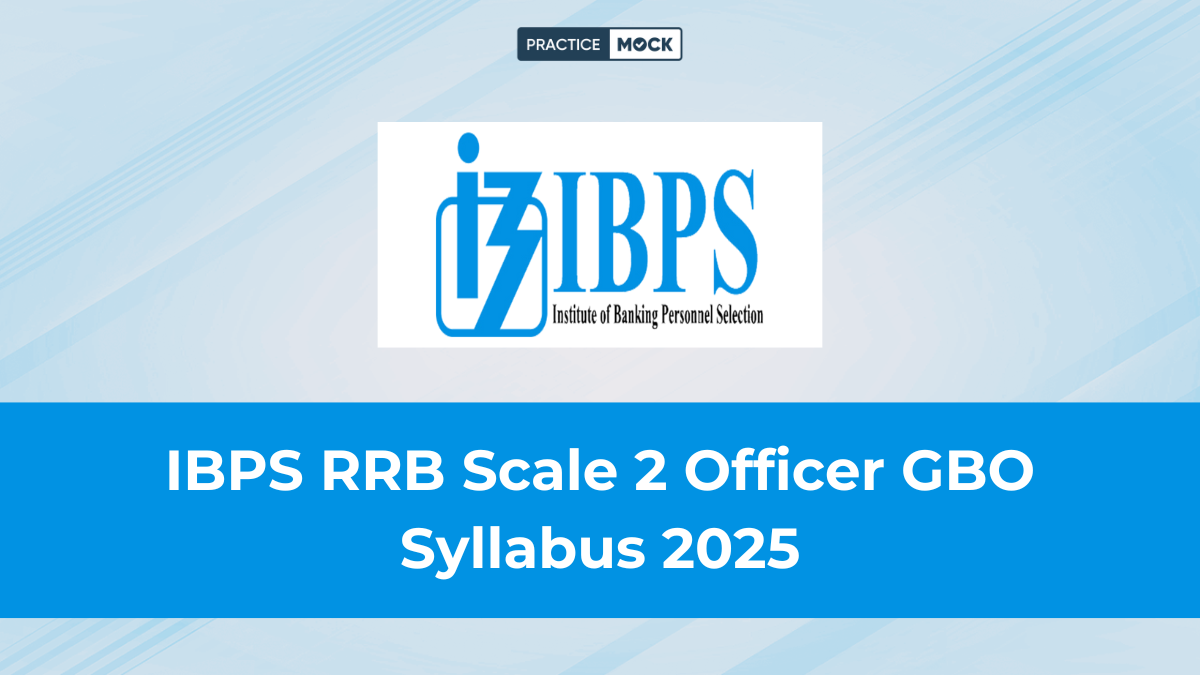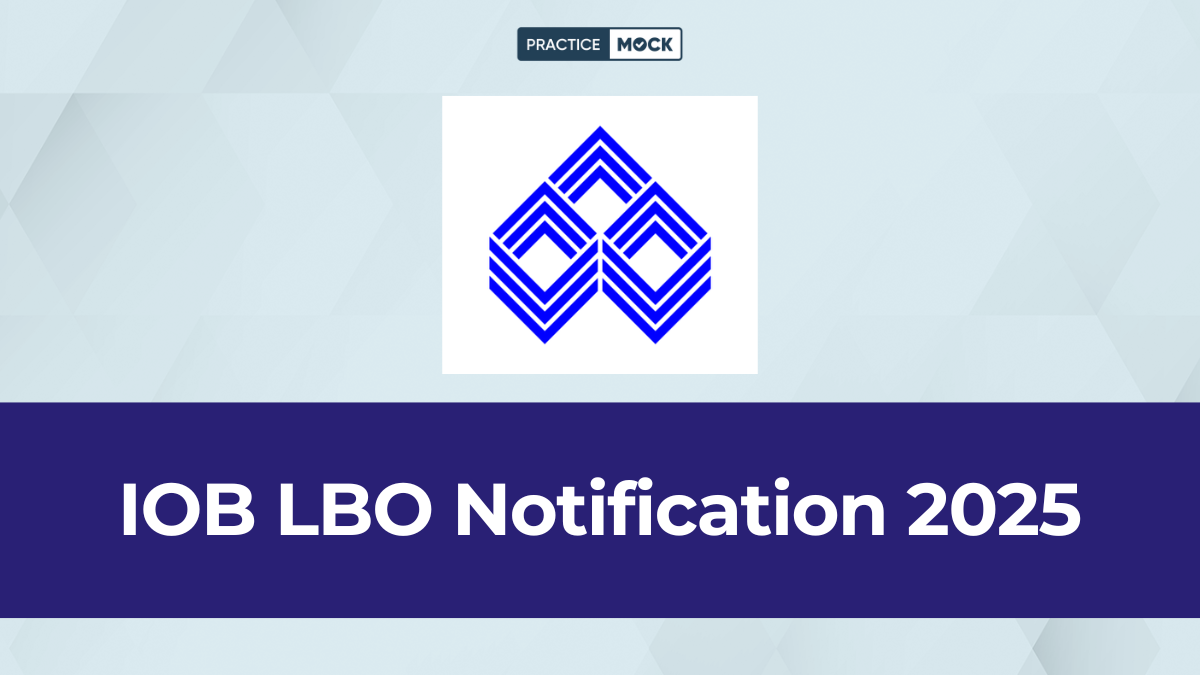IBPS RRB PO vs IBPS PO- Which is a better Job from Career Prospects?


Comparing IBPS RRB PO vs IBPS PO from a career perspective, both roles offer stable and good opportunities, but they differ significantly in growth path, work culture and exposure. IBPS PO, being a position in a nationalised bank, offers extensive career growth with faster promotions, urban postings and opportunities for overseas assignments or specialised roles. On the other hand, IBPS RRB PO caters primarily to rural and semi-urban areas, focusing on banking and financial work at the grassroots level. While it offers better work-life balance and less pressure, growth can be slower and more localised. Candidatse can check detailed knowledge in the article below:
Overview of RRB PO and IBPS PO
IBPS RRB PO (Regional Rural Banks – Officer Scale I)
- Conducted by: IBPS
- Purpose: Recruitment for Officer Scale I positions in Regional Rural Banks, which focus on rural and semi-urban banking services.
- Target Areas: Primarily rural and semi-urban regions, with a focus on agricultural and small-scale financing.
- Eligibility: Graduate degree, age typically between 18–30 years (relaxations apply for reserved categories).
- Exam Structure: Preliminary, Mains, and Interview stages.
IBPS PO (Probationary Officer)
- Conducted by: IBPS
- Purpose: Recruitment for Probationary Officer/Management Trainee roles in major Public Sector Banks.
- Target Areas: Urban, semi-urban, and rural branches
- Eligibility: Graduate degree, age typically between 20–30 years (relaxations apply for reserved categories).
- Exam Structure: Preliminary, Mains, and Interview stages.
Eligibility Criteria:
IBPS RRB PO: A candidate applying for the post of IBPS RRB PO needs to fulfil the following criteria:
Educational Qualification
- IBPS PO: Graduation in any discipline from a recognised university.
- IBPS RRB PO: Graduation in any discipline. However, preference is given to candidates with knowledge of the local language of the state they are applying for.
Age Limit (as of 2025 notification)
- IBPS PO: 20 to 30 years
- IBPS RRB PO: 18 to 30 years
- Age relaxation is applicable as per government norms.
Nationality
Candidates must be:
- A citizen of India
- A subject of Nepal/Bhutan
- A Tibetan refugee (before January 1, 1962) or a person of Indian origin who migrated from certain countries.
Selection Process:
The selection process is the same for both IBPS RRB Officer Scale 1 and IBPS PO. A candidate aspiring for either of the posts will have to appear for the Prelims and Mains exam and then appear for a personal interview. However, only those who clear the prelims and mains are called for the interview. Those who clear the interview round are then recruited. Although the selection process is the same for both, certain differences in the subjects still exist. Further, the difficulty level in the case of PO is slightly more than that of RRB PO. The difference between the two exams can be understood from the table below:
| Exam | The prelims exam consists of three subjects, namely: English Language Quantitative Aptitude, and Reasoning Ability | IBPS PO |
| Prelims | The prelims exam consists of four subjects, namely: Numerical Ability and Reasoning Ability | The prelims exam consists of three subjects, namely: English Language, Quantitative Aptitude, and Reasoning Ability |
| Mains | The mains exam consists of five subjects, namely: Reasoning, English Language or Hindi, Quantitative Aptitude, General Awareness, and Computer Knowledge | The mains exam consists of five subjects, namely: Reasoning, English Language, Quantitative Aptitude, General Awareness, and Computer Knowledge |
Salary and Perks
RRB PO
- Salary: Starting basic pay is approximately ₹36,000–₹42,000 per month (varies by RRB). After allowances (e.g., HRA, DA, and rural allowances), the in-hand salary ranges from ₹50,000–₹60,000.
- Perks:
- Rural-specific allowances (e.g., travel or accommodation support in remote areas).
- Job stability with fewer transfers compared to PSBs.
- Pension, medical benefits, and leave policies.
IBPS PO
- Salary: Starting basic pay is around ₹36,000–₹42,000 per month, similar to RRB PO. However, the in-hand salary after allowances (HRA, DA, etc.) ranges from ₹52,000–₹65,000, often higher due to urban postings.
- Perks:
- Higher HRA for metro/urban postings.
- Access to advanced training programs and certifications.
- Opportunities for foreign postings in banks with international operations.
- Comprehensive benefits like medical insurance, loans at concessional rates, and pensions.
Career Growth and Promotion Prospects
RRB PO
- Promotion Path:
- Officer Scale I → Officer Scale II → Officer Scale III → Assistant Manager → Branch Manager → Regional Manager.
- Promotions are relatively faster in RRBs due to smaller organisational structures and fewer employees.
IBPS PO
- Promotion Path:
- Probationary Officer → Assistant Manager → Deputy Manager → Manager → Senior Manager → Chief Manager → Assistant General Manager → General Manager.
- Promotions are merit-based and depend on performance, seniority, and passing internal exams.
Which Should You Choose?
The choice between RRB PO and IBPS PO depends on your priorities, lifestyle preferences, and career aspirations:
Choose RRB PO if:
- You prefer working in rural or semi-urban areas and are comfortable with a simple lifestyle.
- You value faster promotions and a less competitive work environment.
- You are passionate about rural banking and financial inclusion.
- Stability and fewer transfers are important to you.
Choose IBPS PO if:
- You want diverse banking experience and opportunities to specialise in areas such as corporate or international banking.
- You are comfortable with frequent transfers and a competitive work environment.
- You prefer urban postings with access to modern facilities and advanced banking systems.
- You aim for high-profile roles and long-term career growth in the banking sector.
Join our exclusive Telegram group where our experts are ready to answer all your queries, guide you in banking exam preparation, and give personalised tips to boost your success. Get access to real-time solutions, expert advice, and valuable resources to improve your study journey. [Click here to join now!]
Recent Posts
IBPS RRB Notification 2025 in June, PO & Clerk Exam Date Out, Check All Upcoming Events
The IBPS RRB Notification 2025 is expected to be released in June 2025. Candidates can…
IBPS RRB PO Prelims Mock Test Free 2025, Attempt Now!
Here we are providing the IBPS RRB PO Prelims Mock Test Free 2025. Candidates can…
UPSC Admit Card 2025 Out for Prelims, Get Direct Link
The UPSC has released the UPSC Admit Card 2025 for Prelims exam. In this blog,…
How to Crack RBI Grade B in First Attempt?
Aspirants preparing for RBI Grade B exam. Know the 10 tips to crack RBI 2025…
IBPS PO vs RRB PO, Which Exam is Easier to Crack?
IBPS PO or RRB PO? Compare difficulty, pattern, and job roles to choose the best…
How to Master Government Schemes for RBI Grade B Exam
Master government schemes effectively for the RBI Grade B exam with comprlete strategies, Important resources…



